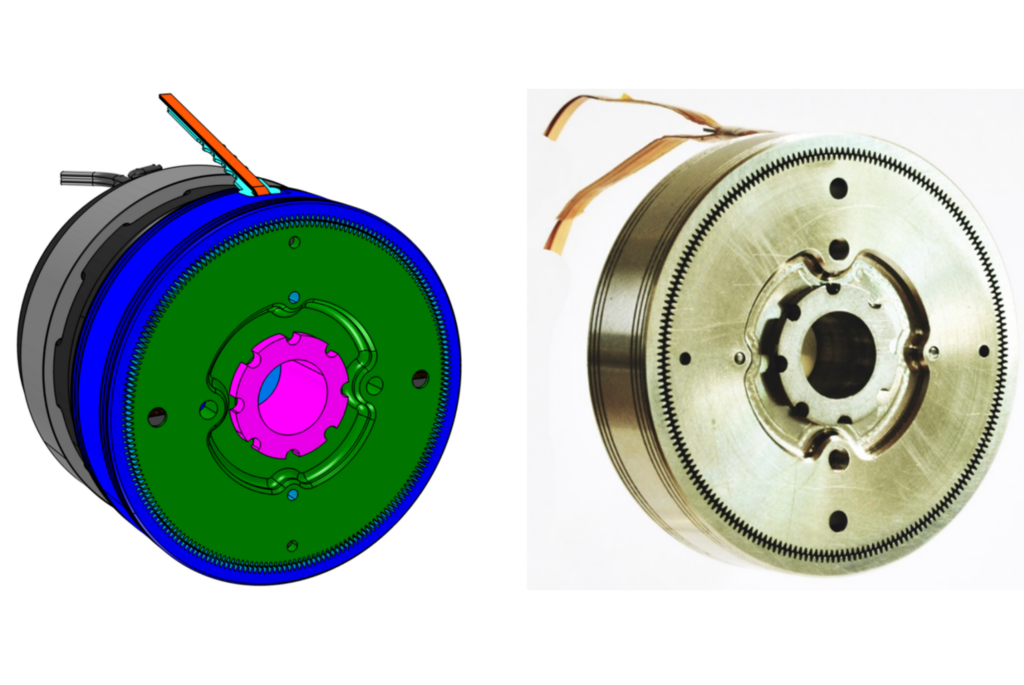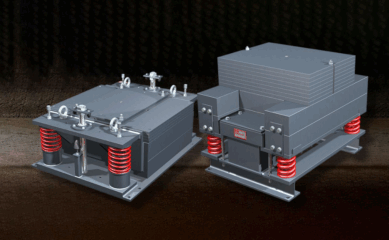Magnetic Brake II

Mankind’s activities in space are constantly increasing. Modern satellites and other spacecraft are equipped with a large number of rotary actuators. Conventional friction-based brakes or brakes with mechanical locking cannot be used to block rotational movements, e.g. when fixing antennas or solar panels in their orientation, due to the risk of cold welding or abrasion.
The conventional approach uses stepper motors that have an inherent cogging torque due to magnetic reluctance. However, the size of the stepper motor is sometimes determined not by the required rated torque, but by the required braking torque. This makes these actuators unnecessarily large and heavy.
The MagneticBrake II project has developed a new concept for a magnetic brake that can be switched on and off with a simple current pulse. The special thing about it is that no energy is consumed in any of the stable states – neither in the locked nor in the unlocked state.
AAC GmbH from Wiener Neustadt (AT), IIES from Vienna (AT) and the Linz Center of Mechatronics GmbH from Linz (AT) have worked together to develop, design, prototype (breadboard and engineering model) and successfully test this novel magnetic brake. The impressive results were presented at the ESA International Space Days in Noordwijk, NL in 2022 and will be presented at the 20th European Space Mechanisms and Tribology Symposium in Warsaw, Poland at the end of the project. The magnetic brake is now available for use in space projects or terrestrial applications.

Dipl.-Ing. Dr. Manfred Nader
Chief Scientific Officer (CSO)
Further reference projects

Adjustable passive vibration damper
Adjustable passive vibration damper Effective vibration reduction for buildings Buildings are exposed to a variety of loads, for example from…


BABA emissions
BABA emissions BAtteria-Based energy storage for the mobile provision of EMISSION-free electrical energy The reduction of greenhouse gases (GHG) is…

